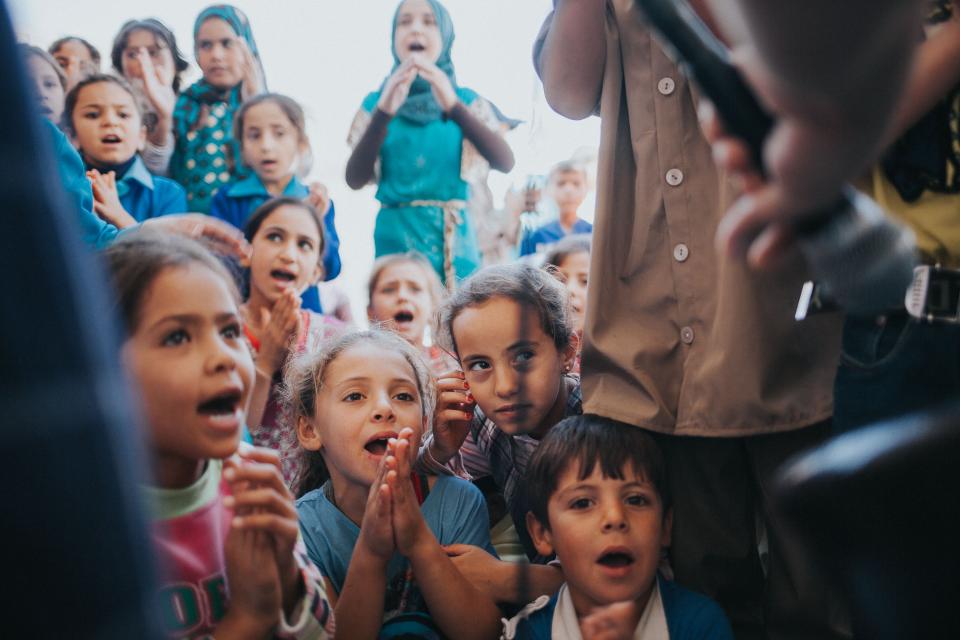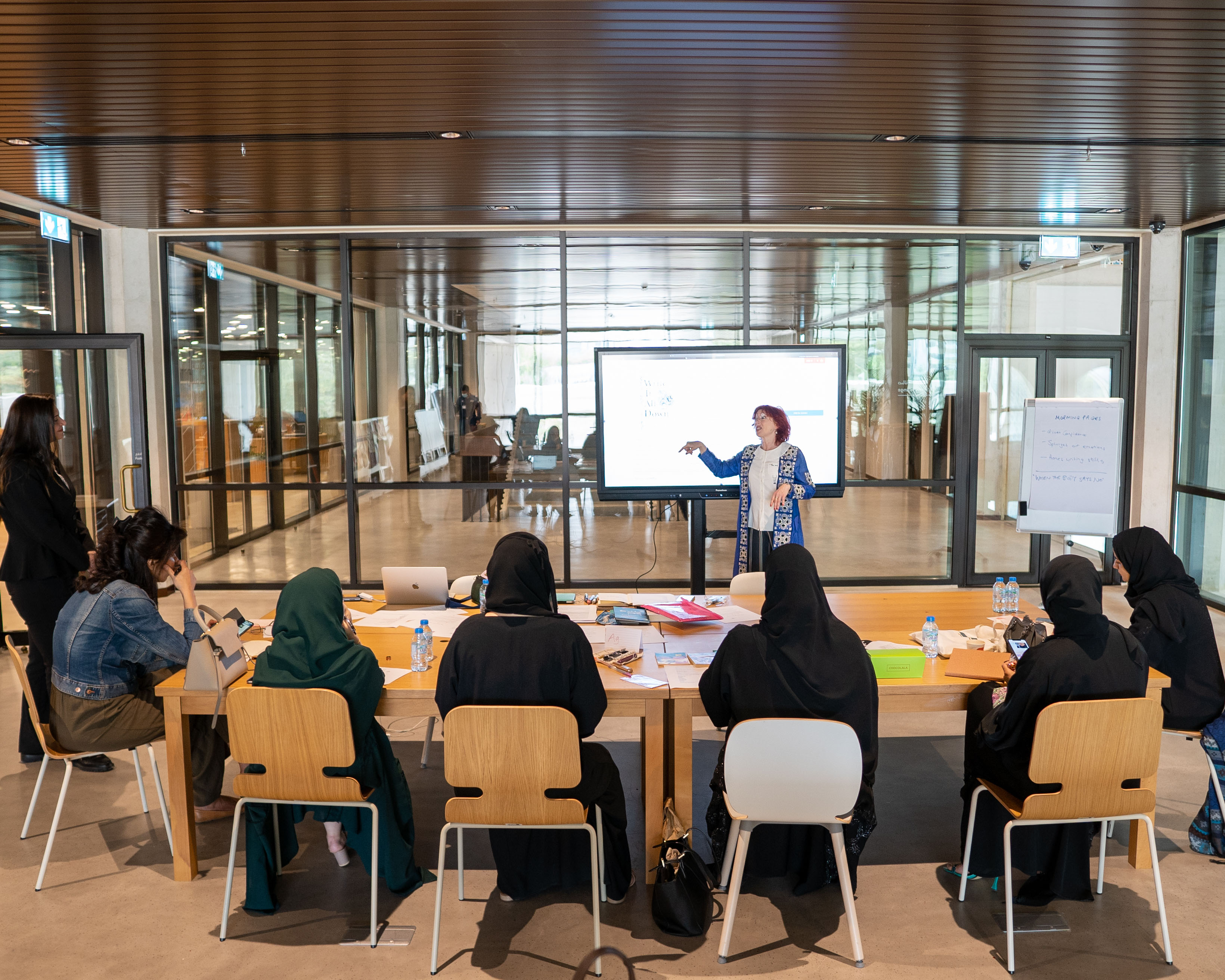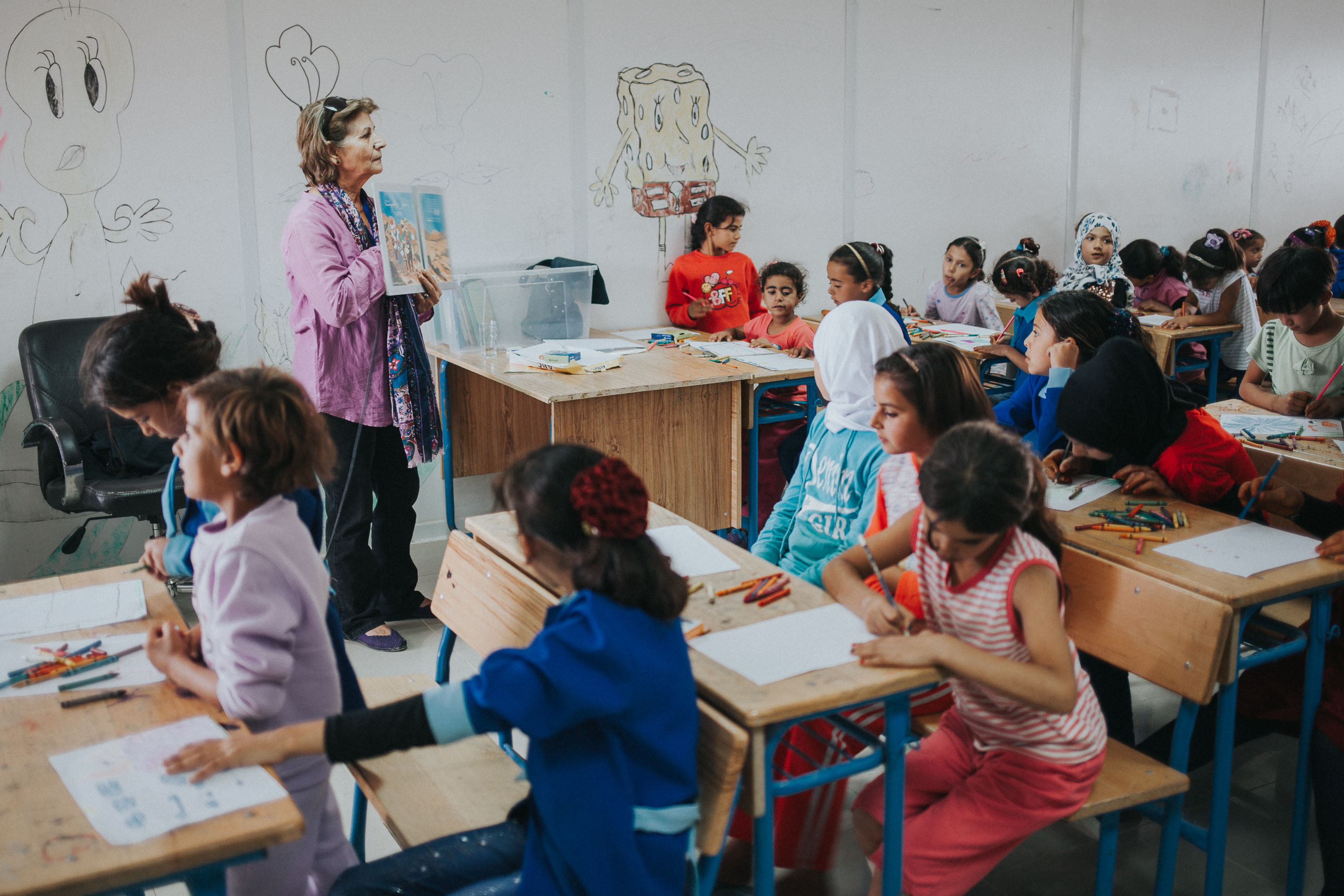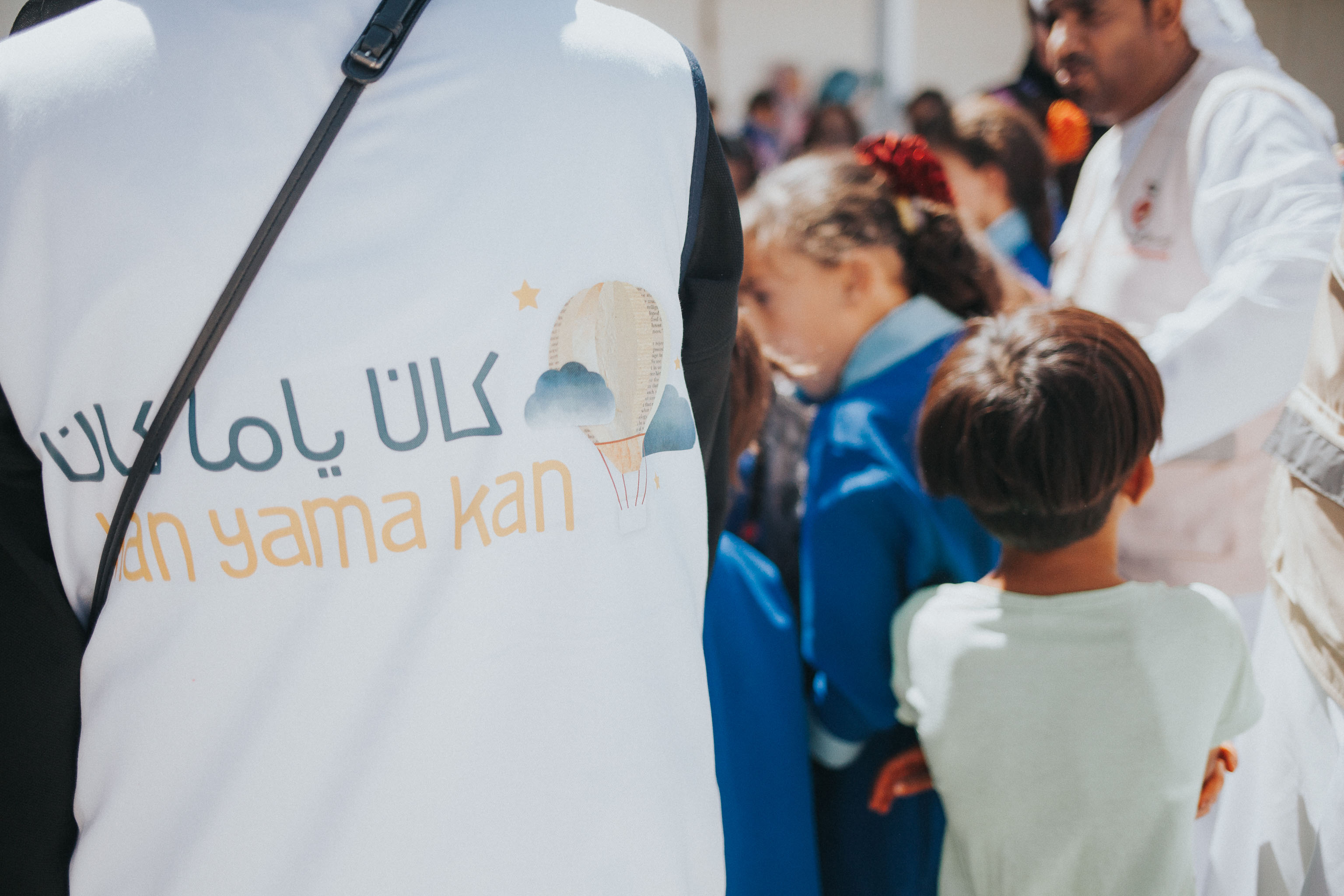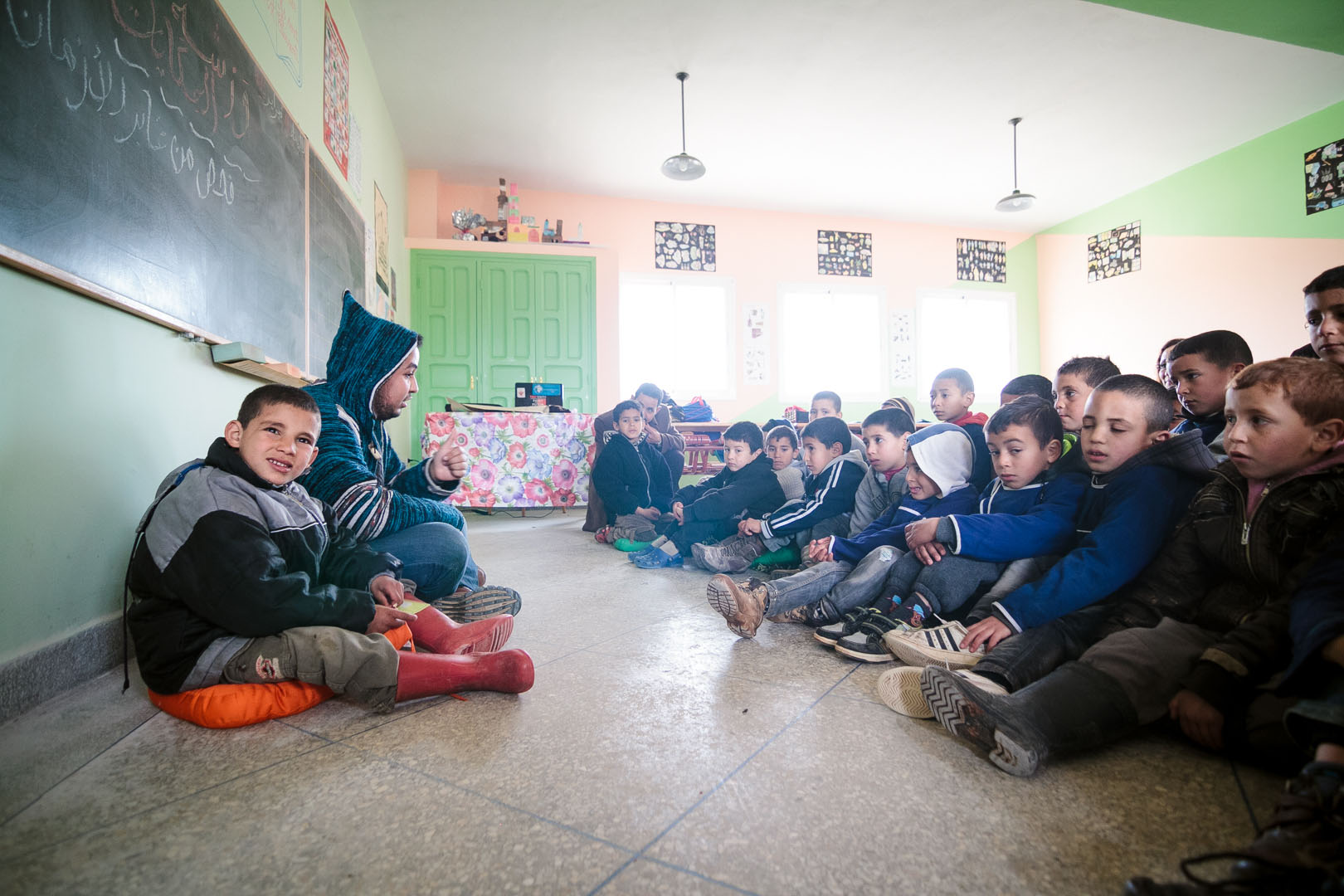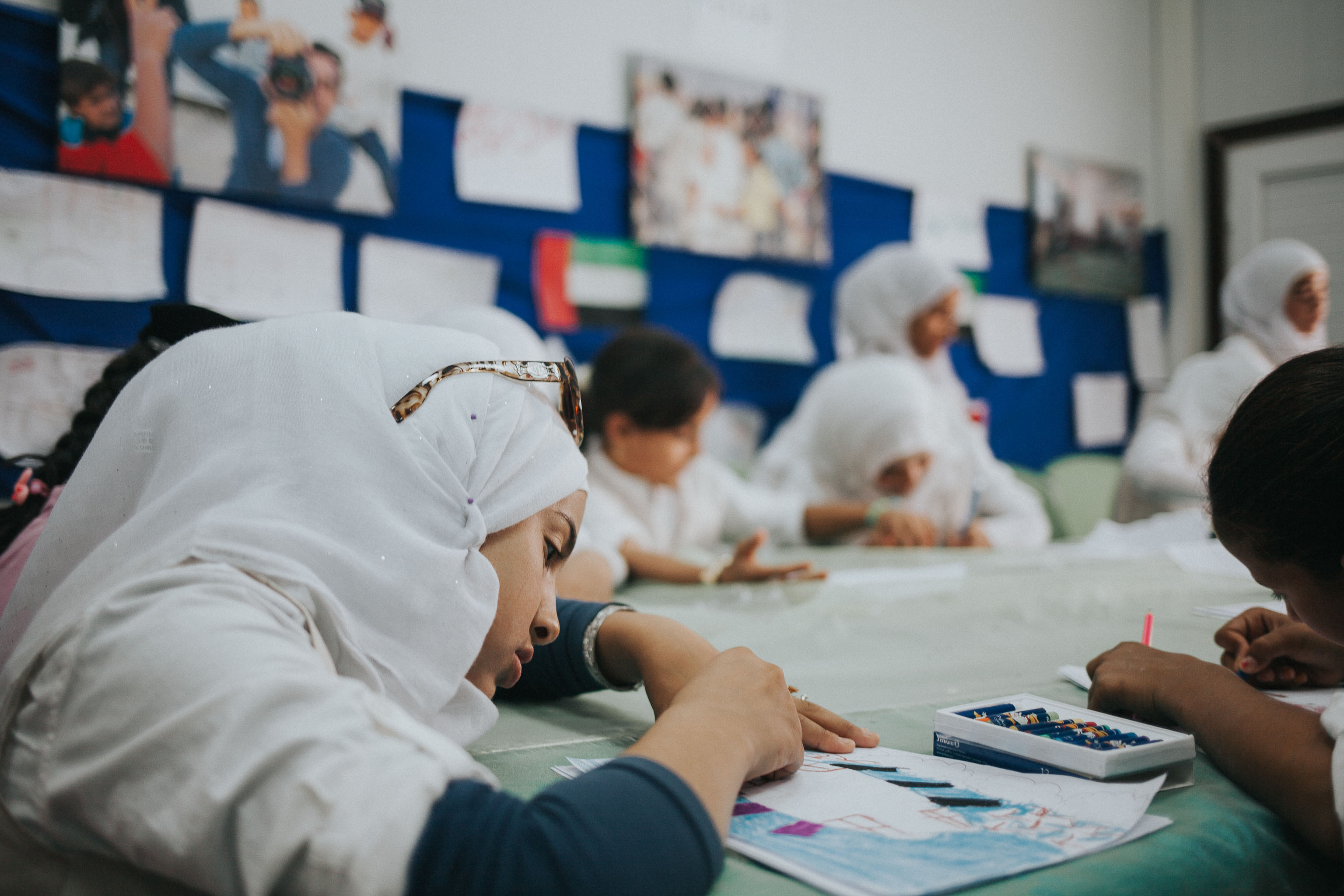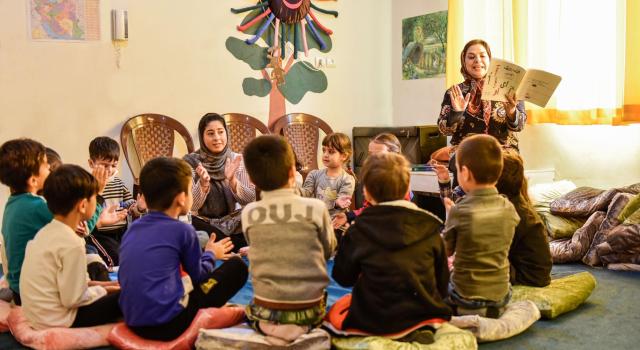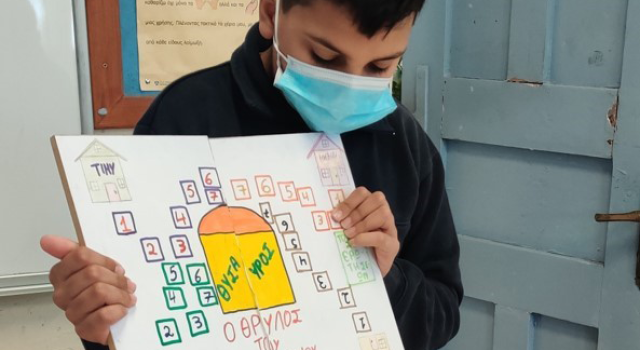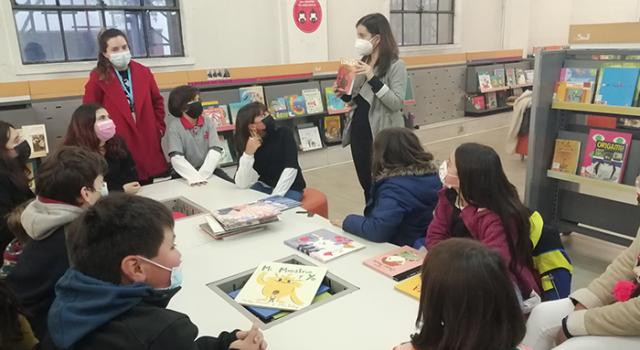IBBY project in the spotlight: 'Once Upon a Time' in the United Arab Emirates
How can we encourage reading for pleasure in young people and adults? Many organizations have embarked on innovative projects that have contributed to promoting a reading culture. In this international series, we spotlight reading initiatives from around the world that can inspire reading promoters everywhere. This episode: the Kan Yama Kan project from the United Arab Emirates.
by guest writer Yasmine Motawy
Civic mindedness and global citizenship
Launched in November 2015 by the UAE Board on Books for Young People (UAEBBY), the Kan Yama Kan book initiative has been engaged in distributing books and equipping libraries in areas with children in crisis. ‘Kan Yama Kan’ means ‘Once Upon a Time’ in Arabic, and the intention is that children who are offered books are transported to a place of hope where new stories are possible.
Today the initiative has provided more than 24,000 books to children around the world who are living in areas with limited or no access to books because of conflict, socioeconomic barriers to accessing books, or natural disasters. The project consists of four pillar activities, namely: book collections, donations, bibliotherapy, and training local authors and publishers in silent book production.
Kan Yama Kan initially emerged from the way in which the UAE sees itself: Expats make up almost 90 percent of the UAE population, and this small nation prides itself on its values of global citizenship, intercultural tolerance and understanding, and …reading! The Emirate of Sharjah, a rapidly growing cultural hub, was named the World Book Capital in 2019 based on a bid that brought together nineteen national entities. Before that in 2015, the ruler of the Emirate of Dubai launched the largest Arab literacy initiative in history, The Arab Reading Challenge, that encouraged school students to read as many books as possible in one academic year.
I have worked as part of a network on Children’s Literature in Critical Contexts of Displacement (CLCCD) funded by the UK Arts and Humanities Research Council–Global Challenges Research Fund. This involved an incredible team of academics, book mediators, and government and non-governmental organizations working in Egypt, Scotland and Mexico who “collaboratively designed workshops that examined the use of children’s literature as a cultural tool for post-crisis interventions that could contribute to creating a safe space for children and their families to reimagine and restore their self and group identities” (see McAdam et al. 1). The underlying principle of our work was that mediating and sharing books with children in situations of precarity inspired in them a sense of hope for a brighter future at a time where hope may elude them.
“The underlying principle of our work was that mediating and sharing books with children in situations of precarity inspired in them a sense of hope for a brighter future at a time where hope may elude them.”
When I first heard about this project in 2018, I was struck by its similar focus on hope. Today, as the project robustly enters its eighth year, I interview the Sharjah-based UAEBBY President, Mrs Marwa Al Aqroubi to understand how these activities function on the ground, the challenges and lessons learned, the role of enabling partnerships, and the advice she may have for reading promoters.
From the camp and beyond
The project’s first activity began outside of the UAE, sending books and mediators to the Syrian refugees fleeing civil unrest and currently housed at The Emirates Jordanian Camp (EJC) of Mrajeeb Al Fhood, which is supervised by the Emirates Red Crescent. This act of cultural diplomacy and civic mindedness is focused on the sustainable development of human capital in this crisis. Alaqroubi shares, “The project began out of a sense of solidarity with our Arab brothers, sisters, and children who are forcibly displaced. On one hand, we wanted these children to have high quality books in their mother tongue, so that they could appreciate their roots and establish a sense of belongingness to their language, culture, and literature. On the other hand, these books provided a hopeful, entertaining refuge from their tough daily reality.” The response to our work in Jordan inspired us to expand to other countries where we had partners that could connect us to schools, centers, and libraries that serve vulnerable children in India, Morocco, Lebanon, Greece, and Italy.
From the experience in Jordan, it quickly became clear that if the books were going to be put to the best use, UAEBBY would need trained book mediators on their side whenever possible. UAEBBY regularly follows up with these trained mediators to ensure that the goals of literacy, accessibility and instilling a culture of reading are continuously met.
They began training Emirati-based bibliotherapists who could work with the children in the EJC as well as children living in the UAE itself who were navigating their own social problems. They first began by training children’s book authors, and then their second workshop was given to members of the police force who worked closely with juvenile inmates aged 7 to 16. The most recent workshop was with librarians. Each workshop is tailored to the needs and abilities of its participants, and the overriding principle for all the workshops is simplicity and streamlining so that busy professionals can find the time to add this valuable skill set to their toolkit in the midst of their full time responsibilities, “we worked with British author and famous bibliotherapy expert Ella Berthoud on three day workshops focused on developing attentive listening skills, as well as a toolkit with which to use the books therapeutically and to encourage self expression.”
At the time the project began, UAEBBY was already engaged in the hosting of the IBBY Silent Book Exhibition in 2017, so the final step was to support the homegrown production of silent books, which -among other things- are ideal for use with children in crisis, as they appeal to children and adults around them them, of all literacy levels and backgrounds.
Supportive partnerships
UAEBBY works with regional and international partners to support their book distribution drives as well as their book donations to libraries. While Emirates Red Crescent is a leading partner, UAEBBY also works with IBBY chapters and a host of other on-ground partners to support the specific needs in each country.
They have found that social media campaigns as well as setting up activations alongside local events helps to get the word out and bring in books. They ramp up advertising during Ramadan, when the Muslim population in the UAE is most keen to engage in charity work, which has proven to be an effective strategy. A partnership with logistics and distribution company Tawseel has enabled them to collect donations from individuals who are eager to participate. Once the books are collected from all the different channels, UAEBBY coordinators and volunteers sort through them, “we check their physical condition and content quality, handpicking only the ones that are suitable for distribution in line with the values and objectives of Kan Yama Kan to enrich the lives of young refugees and others who do not have access.”
Partnerships have been essential to allowing the project to expand beyond its original mandate of serving Syrian refugees at EJC. Although about a third of the books donated so far have gone to this first target group, “In 2017, we capitalized on the UAE’s celebration of the UAE’s Year of Giving, and partnered with Etihad Airways, and were able to bring books to 1500 children at the Naushera Mewat Public School in the Indian capital of New Delhi, founding a 2500-book library.” Annual Kan Yama Kan book donation drives quickly began to accept children's books in any language, as UAE libraries that have benefitted from the project serve children from 200 countries.
Sustainable libraries
With this expansion, UAEBBY began to partner with organizations that could help us set up libraries as central focal points for its activities, “Today, Kan Yama Kan has helped to establish permanent and mobile libraries in six countries including Jordan, Morocco, India, Lebanon, Italy, Germany and Greece, either in refugee camps or ones that serve children in need.” Alaqroubi stresses that they try to stay deliberate about what they do as a matter of policy, and even though they see need everywhere, it is important for them that they ensure that the libraries they have already established are sustainable and optimized. To this end, they support the libraries, the librarians, and the volunteer book mediators affiliated with them with resources that raise their capacities, as well as expand the range of books available in these libraries to make sure that the readers are being served as their needs change.
For instance, The Big Heart Library in Jordan, which houses Syrian refugee children and young adults in the Emirati-Jordanian camp in Al Zarqa area, is one of the largest recipients of book donations from UAEBBY to date. As the only children’s library in the refugee camp, it has received more than 5,000 books in addition to the 550 that were donated last year.
“One of the things we learnt was that constantly replenishing and renewing these remotely located libraries was just as vital as establishing them.”
Ensuring there is a strong feedback loop is essential to sustainability; therefore, after each donation UAEBBY follows up with the beneficiary organizations to ensure that the children are truly reading, responding to, and engaging with the books. They also ask if the libraries or beneficiary centers need any additional support. “One of the things we learnt was that constantly replenishing and renewing these remotely located libraries was just as vital as establishing them. Today our libraries and other beneficiary centers have books that range from children’s literature, to books on self-development, to books on the arts and sciences.”
Kan Yama Kan also organizes specialized training workshops for librarians to equip them with the skills they need to facilitate these books and foster positive relationships between these books and the children. They do this with the recognition that in spite of the direness of their situation, the children can often slide into the lure of easy digital streaming and pass up a valuable window during which a love of reading could become a source of comfort, healing, and hope. The librarians are truly the strongest link, and “it is really incredible to see how fast the children catch on to the beauty of books and fall in love with the written word.”
“It is really incredible to see how fast the children catch on to the beauty of books and fall in love with the written word.”
When difficulties present themselves, strong partnerships are often the best resource. One of the first challenges that presented to Kan Yama Kan was bringing the books to beneficiary communities in distant regions with accessibility issues. “We work hard at communicating consistently and clearly with our institutional partners, but the unexpected support usually always comes from members of the community itself.”
In the aftermath of the Beirut Port explosion in August 2020, the Kan Yama Kan initiative supported the mental and emotional health of children in Lebanon through donating 1500 children’s books to support three public libraries that had suffered extensive damage. Children living in the areas around these libraries were able to attend public book reading sessions led by known writers and illustrators.
Looking ahead
“Looking back at Kan Yama Kan’s seven-year journey, I would say that the only thing we would have done differently if we were to do it again, might have been to reach out to more children than we did. And this is more a heart’s desire than a serious regret, as practically speaking, we really did do more than we had initially set out to. My advice to other reading promotion projects and initiatives is: keep things simple and interesting - no one likes a reading promotion project that is too complicated or boring.” The project’s two pronged approach is to get the book into the hands of children in crisis, and make sure that there is a mediator there to encourage them to open it and dive in. Today, the UAEBBY in collaboration with Ella Berthoud is in the process of producing the first Arabic bibliotherapy guide.
“My advice to startup reading promotion initiatives is to keep things simple and interesting - no one likes a reading promotion project that is too complicated or boring.”
